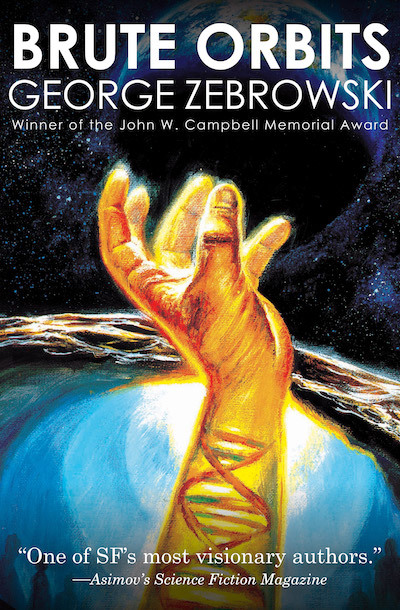Winner of the John W. Campbell award in 1999 for best novel, this is definitely a book that won't appeal to everyone. The premise is interesting: in the late 21st century, asteroids are brought into near Earth orbit to be mined and then converted into orbital prisons once the mining is over with. A hollowed out asteroid is placed into a solar orbit that will bring it back around in 10, 20, 50, or 100 years, however long the prison term of those particular internees is. Or not. Deliberate errors in the calculations can insure that "undesirables" never return and the penal asteroids soon become the dumping grounds for political prisoners in addition to hardened criminals.
So far, so good. The premise sounds great, but a good portion of the book is written almost like a college thesis on crime and punishment with the author belaboring his theories on society and the root causes of crime in far too many asides:
"All attempts at law, all religion, all ethical norms might be nothing more than attempts by the weak to restrain the strong. Then, within the law, arise the new strong, who subvert the law for their own ends of power and family interest, leaving the old strong outside their circle to pursue the waiting possibilities which they call crime. The weak, the cowardly, the decent ones, live between these groups.”
The philosophical musings tend to slow things down a bit and the fact that there isn't a central character or story makes it diffilcult for the reader to fully invest himself into what is happening. Zebrowski thinks up several different scenarios and spends a few chapters on each: one asteroid consists of all male internees convicted of murder, another is all female killers, a third consists of both genders, one only holds sexual sadists/serial killers, another one is all political prisoners, etc. He then speculates how each group adapts to their situation. Interesting to some extent, but not enough time is really spent on each scenario to give it more than a cursory examination.
My biggest issue with the book is the sexual violence that occurs throughout it. I don't mind violent books, but I do dislike books where violence is against women. One woman is gang raped twice by the same group of men and in another disturbing scene, a serial killer fantasizes about what he did to his favorite victim. I'd probably rate this book 3 stars, but the rape scenes bring the score down a bit.

